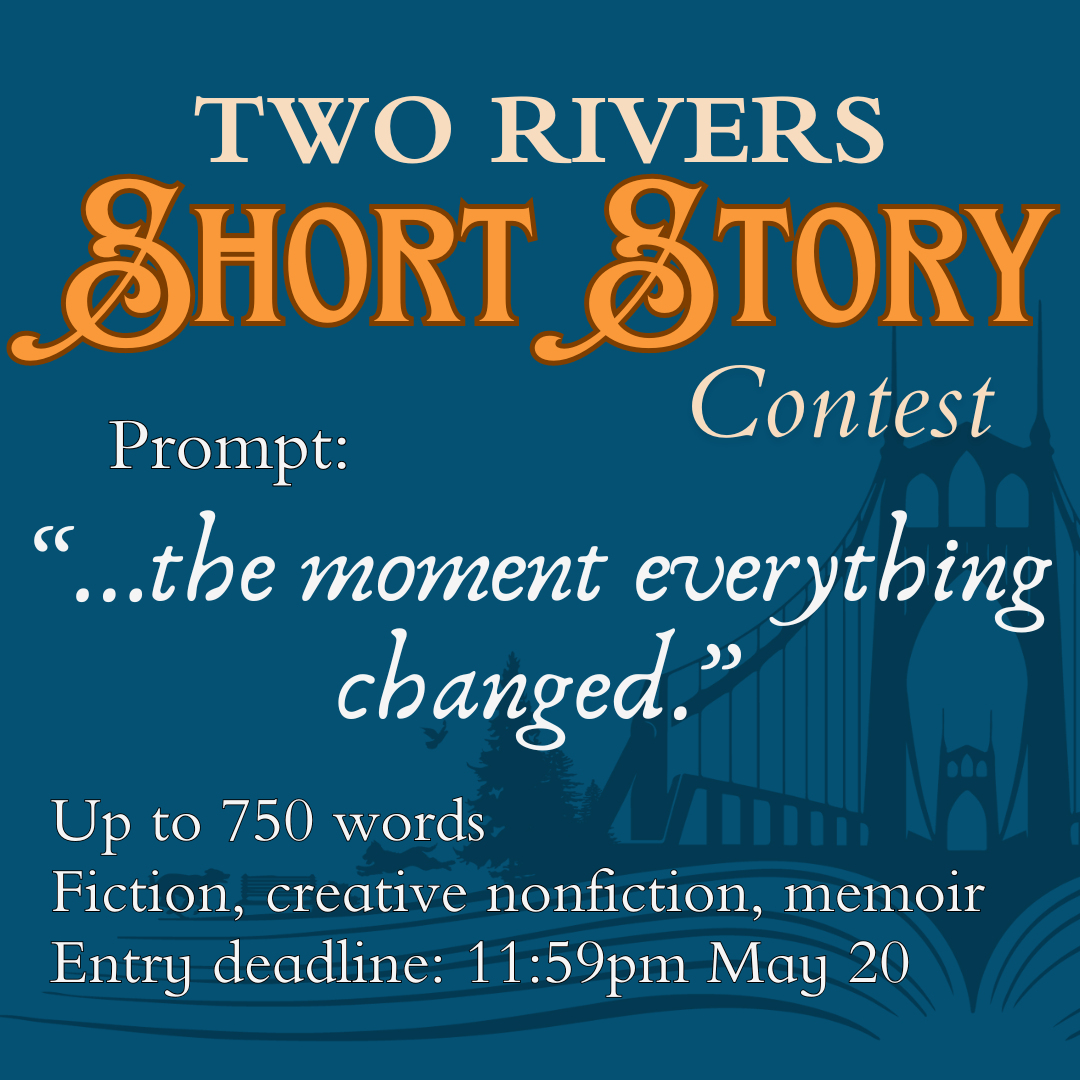This week and for the whole month of May, I want to do something a little different in The Little Room. It’s short story month! Stories in May don’t seem to enjoy the same attention as poems in April, and I’d like to do my part to remedy that.
Below you’ll find my brief annotations on seven short stories, all published in recent editions of literary magazines, online and in print. I’ve linked to everything I can, to make it easy for you, readers, to leave this newsletter and read some stories! Last week’s John Carr Walker Sitting In His Little Room includes links to and annotations on ten stories.
Far below, see information on a different kind of short story contest and public reading I’m jurying with my university students and Two Rivers Books. If you’re in the greater Portland, Oregon area, this is your last weekend to submit!
Annotated Bibliography 5/11-5/17
5/11. “Angela,” Federico Escobar, Cleaver Magazine 45, Spring 2024. Two strangers meet at a bus stop, sort of talk, and are transformed—or are they? The style is alluringly neutral, the descriptions declarative and the dialogue choked, even though they describe an increasingly strange scene—the characters begin dancing. I love how the story keeps the reader at a distance with one arm, so to speak, while embracing us with the other, as if the composition dances with us.
5/12. “Mae Nak,” Para Vadhahong, Waxwing Issue XXX, Spring 2024. A wife loves her husband, a soldier, but all is not well: she’s lost their baby, lost herself, and seems to be living in a vessel of some kind. Based on a famous Thai ghost story, this reimagining puts us in the mind and memories of the ghost: part confession, part lament, and part love song. Knowing the original ghost story certainly helps the reader navigate the plot, but I felt the narrator’s longing, her sorrow, and understood in my bones she’s been somehow pitted against her nature.
5/13. “I’m Listening,” Garielle Lutz, Fence, Spring 2024. About a narrator recalling a trio of characters, from different moments in life, that intertwine with his own in unmistakable yet unspeakable ways. Lutz is a master of the overwritten run-on sentence, but there’s fewer of those fireworks here, though the style still generates a heat of its own. The story reminds me of a picaresque, but driven by the hero’s tweaked perceptions rather than high adventures, by the fool’s quest for understanding rather than for wealth or fame.
5/14. “Nightjar,” Christina D’Antoni, Fractured Lit May 9, 2024. About a woman who runs over a bird in the road, makes an attempt to save it, but gets distracted looking inward—very deeply inward. The structure reminds me of the Lutz, another picaresque, but constructed of brief memories rather than encounters with other people. The guiding principle seems to be movement—driving in a car, racing thoughts—and movement suddenly choked—the struck bird, the falling of silence.
5/15. “Phantom Limbs,” Robert Earle, The Blood Pudding Issue 14. About a woman in hospice care calling a man from her past, who she confuses with many men from her past, who eventually meet up at her funeral. The style is driven by dialogue and a straight-talking first person narrator; what’s said, and how, is very much part of what happens. I love how the narrator, in the course of playing along with the woman’s end-of-life delusions, relates the many transformations in her life, her moves and career changes and imploding relationships, the tidbits of news about her that he always saved.
5/16. “Fun Guy,” Becky Hagenston, Blackbird 22.2. A hilarious pandemic story (seriously) about the collisions of past and present while living in a (figurative) time-warp, the world on pause, waiting to begin again. The main character Jennifer makes this story; she’s forthright, funny, and rather baffled by the sudden strangeness of life, yet alive to sudden possibilities. I love the story’s many quiet surprises, how it seems to eschew both drama and melodrama for character study and narrative meditation, even though meaningful stuff still happens throughout.
5/17. “The Invention of Folly,” Amber Sparks, The Rupture 120. About an American couple who visit Europe, become obsessed with European ruins, and try to recreate their eerie majesty back home in the suburbs, among competitive, trendy neighbors. The style could be described as accumulative: images of ruin, and the number of characters engaged in the building of ruins, stack up and spread outward, the field of view expanding all the while as if we’re rising above the mess being made. The characters will eventually be pushed out by their own obsessions, their follies—I love how the descriptive style and narrative action move as one.
Learn more Two Rivers Short Story Contest here!

